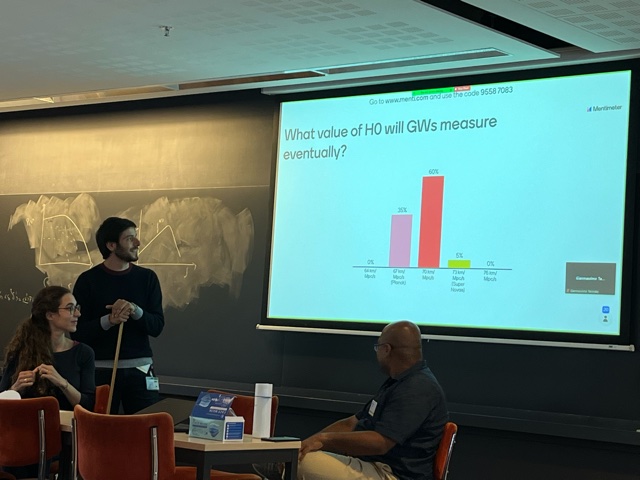Nicola Tamanini
Personal webpage
| Home |
|---|
| Research |
| CV |
| Publications |
| Media Coverage |
| GWs @ L2IT |
| Contacts |
Research
My research activity mainly concerns cosmology and gravitational waves, and specifically the interplay between these two topics. In particular I am interested in understating and employing standard sirens to probe the expansion of the universe and to obtain useful information on the fundamental nature of dark energy. Further personal research interests include dynamical systems applications to cosmology, modified theories of gravity and gravitational waveform modelling from astrophysical sources.
The gravitational wave hunt for the value of the Hubble constant
Gravitational wave observations provide a new way to measure the value of the Hubble constant, which determines the expansion rate of the universe today. The value of this constant is currently measured using different electromagnetic observations, mainly from supernovae and the cosmic microwave background (CMB), which provides two values in disagreement with each other. Gravitational waves will eventually provide a new measurement of the Hubble constant with the necessary accuracy to unveil which of the two values is the correct one. This will lead to important insights on our cosmological models of the universe, possibly yielding hints of physics beyond general relativity.

Fig: Picture of a discussion on gravitational wave cosmology at the workshop “A Shot in the Dark: New Challenges in Cosmology 2022”, Leiden, The Netherlands (June 2022).
Assessing how the LISA mission will probe the expansion of the Universe
The LISA mission will open a new gravitational wave window in the mHz frequency range and will detect new interesting populations of gravitational wave sources. Some of these sources can be used to probe the expansion of the Universe. LISA will thus deliver cosmological information in a complentary way with repsect to standard electromagnetic observations and Earth-based gravitataional wave detectors.
Here is the link to a talk I gave at the 15th LISA Symposium in 2024 about how LISA will map the expansion of the Universe.